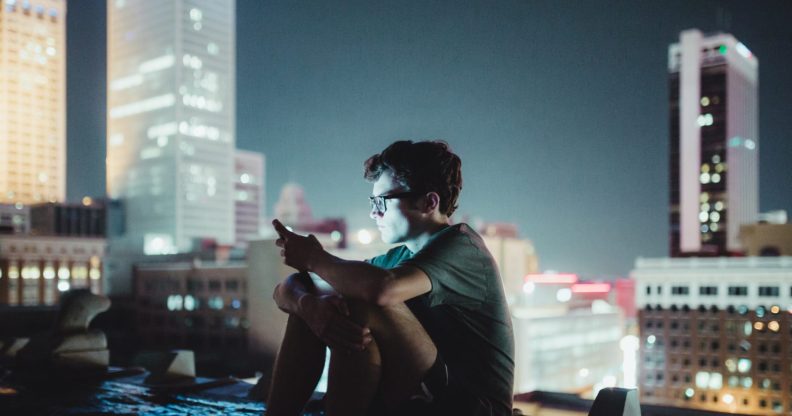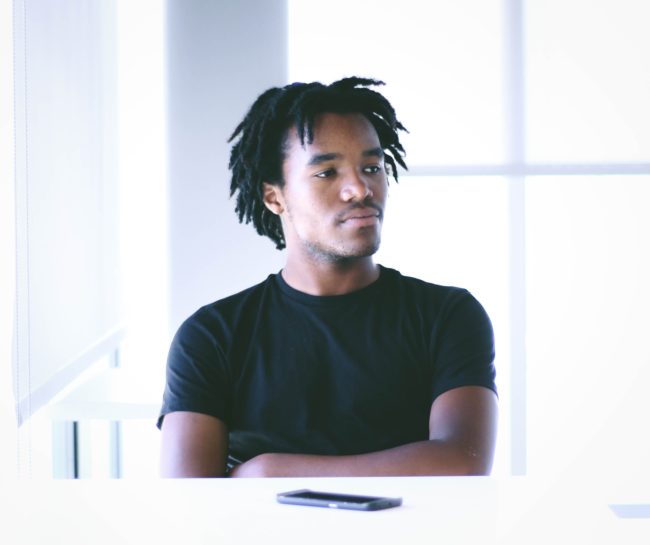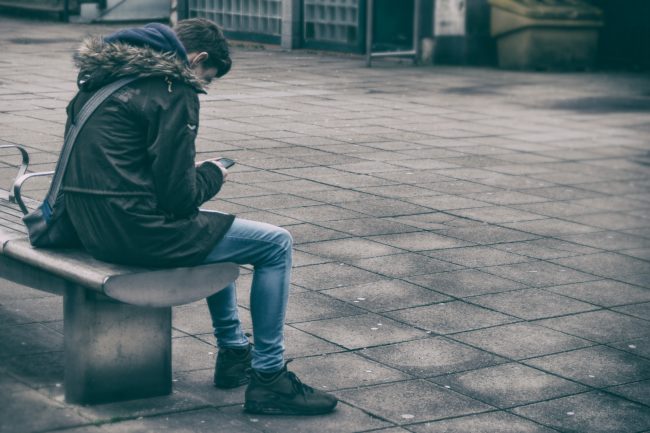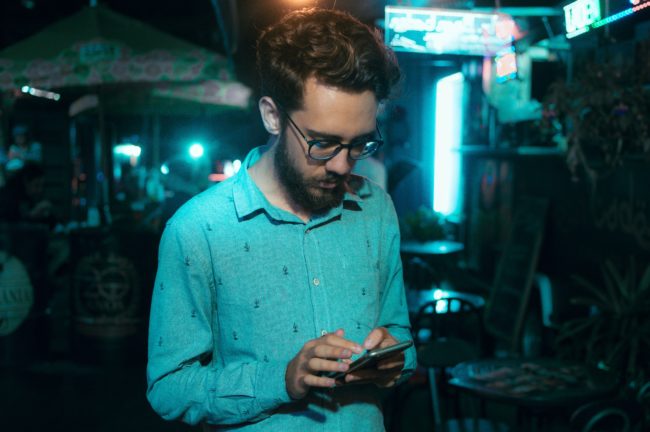Do Grindr and other dating apps affect mental health?

Grindr has a lot to answer for: famously it has changed the face of gay sexual encounters, with its geo-located software revealing the nearest guys to you – and what they’re looking for sexually – at any moment, or place, in time.
In some ways, the app has changed the face of gay sexual encounters forever, and with largely positive connotations. With its functional and straightforward attitude, Grindr does, to use the old age, “what it says on the tin.”
But there is a darker, more lingering side to the immediate sexual encounters the app promotes – most notably, the impact the app has on its users’ mental health.
There are a number of factors at play when determining why the app may not be so great after all, all of which gathered together by the consensus that staring at a screen, rather than having in-person experiences, is detrimental.
One main issue is the contradicting desires of its millennial users, who value experiences (travel, many different jobs rather than committing to one for life, different partners) more than any other generation.
All this flightiness and search for perfection has made millennials the loneliest generation of all.
Loneliness can lead to feelings of anxiety and depression, particularly when perpetuated by the occasional ‘meaningless’ sexual experience.
While going off for a quick sexual fix may feel liberating, exciting and satisfactory, these sexual encounters are leaving users unhappy.
Related: Sam Smith quits drinking as he opens up about mental health struggle

In fact, a new study has found that Grindr makes people more miserable than any other app.
Time Well Spent, an organisation dedicated to “reversing the digital attention crisis,” asked 200,000 people about their app usage.
Cataloguing the general public’s emotional responses to apps, the organisation asked participants to rank every app they use and report on how happy or unhappy it made them feel.
An overwhelming 77 percent of people said that they felt regret when they logged into Grindr.
“A quick shag is fine, but if that’s all you’re agreeing to when really you want a relationship then ultimately you’ll be unfulfilled,” says Monty Moncrieff of the Antidote service for gay men.
“So many of our service users tell us they want more emotional intimacy and a relationship but think everyone else is just looking for casual sex.”
“So perhaps the apps can distort our view of what we think is available and what we think everyone else wants.”
These one-off encounters which fulfil only a sexual and not an emotional desire can lead to anxiety and depression issues.
A new study in Psychological Bulletin has found that “overly critical self-evaluations” are leaving LGBT+-identifying people with higher levels of anxiety and depression.
Couple these results with the staggeringly high rates of poor mental health within the LGBT+ community anyway, because of the well-understood problems facing marginalisation in the queer community.
Then there is the issue of body image. When users exist in a world where there are only attractive men – often displayed on the app as muscular and topless – users can develop insecurities about their own bodies which can be incredibly dangerous.
Related: Kylie Minogue opens up about anxiety battle: ‘there are voices in my head’

Ruby Stevenson, Education and Wellbeing Coordinator for young people’s sexual health and wellbeing charity Brook, says: “There is a risk that people with existing body anxieties or low self-esteem might be vulnerable in an environment where people are predominantly judged on their image.”
It’s all down to digital presentation, and Ruby describes “the nature of behind ‘behind closed doors'” as we interact with one another on these apps rather than in person so we present – in words and image – as unrealistically attractive, or successful, or both to prospective partners.
Presenting one image online means that “people are more blunt than they would be if they were having conversations face to face, and feel they can get away with racism and other forms of discrimination,” notes Ruby.
Antidote’s Monty Moncrieff has had first-hand experiences with men presenting as something other than their true identity online. He describes one of many unpredictable situations which Grindr could throw up.
“Personally I’ve invited somebody round to my place who it turned out wanted to rob me,” the LGBT+ worker revealed.

Related: Trans teenager penned a heartbreaking letter before killing herself
“Thankfully he left without anything of value or any fight, but it was an intimidating experience at the time.”
Then there’s the effect that meeting men online has on gay lifestyle – one argument goes that the advent of gay dating apps is leading to club closures, now men don’t need to go out in the traditional way to meet.
If there is a gradual decrease in opportunities to meet others in-person, there are the obvious mental health issues attached to a lack of social contact and communicating solely online.
Dating apps like Grindr, Tinder and Chappy also ultimately serve to offer us more potential lovers than we could ever need, which makes us feel hopelessly overwhelmed.
In turn, millennials feel what psychologists refer to as choice overload: when there are all the potential (digital) partners in the world, it also feels like there are none.
However, Grindr boss Joel Simkhai insists the app isn’t destroying gay communities in real life: “Even before Grindr, sometimes you wouldn’t go out,” he told Time Out Hong Kong.
“But today if you go to any gay bar or club, you’ll see many people are using Grindr.”
He added that app users are “still socialising” in bars and clubs “very well”.
Monty Moncrieff from Antidote reasons: “Maybe trying to get to know the person you’ve chatted with or dated, see where it leads rather than looking for the elusive ‘someone better on the next swipe.’”
That might, in part at least, be the answer.
Men suffering with poor mental health can get in touch with LGBTQ Mind MindOut LondonFriend Stonewall’s list of mental health providers across the country or the Samaritans at any time.

